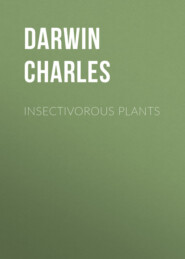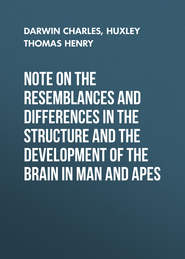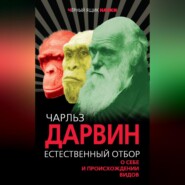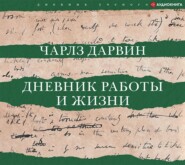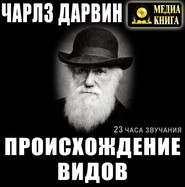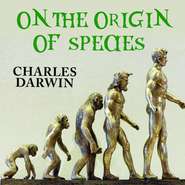По всем вопросам обращайтесь на: info@litportal.ru
(©) 2003-2025.
✖
More Letters of Charles Darwin — Volume 2
Настройки чтения
Размер шрифта
Высота строк
Поля
(772/1. The following letter was written in reply to Sir T. Lauder Brunton's suggestion that Mr. Darwin should be proposed as President of the Science Defence Association.)
4, Bryanston Street, Portman Square, December 17th, 1881.
I have been thinking a good deal about the suggestion which you made to me the other day, on the supposition that you could not get some man like the President of the College of Physicians to accept the office. My wife is strongly opposed to my accepting the office, as she feels sure that the anxiety thus caused would tell heavily on my health. But there is a much stronger objection suggested to me by one of my relations — namely, no man ought to allow himself to be placed at the head (though only nominally so) of an associated movement, unless he has the means of judging of the acts performed by the association, after hearing each point discussed. This occurred to me when you spoke to me, and I think that I said something to this effect. Anyhow, I have in several analogous cases acted on this principle.
Take, for instance, any preliminary statement which the Association may publish. I might feel grave doubts about the wisdom or justice of some points, and this solely from my not having heard them discussed. I am therefore inclined to think that it would not be right in me to accept the nominal Presidency of your Association, and thus have to act blindly.
As far as I can at present see, I fear that I must confine my assistance to subscribing as large a sum to the Association as any member gives.
I am sorry to trouble you, but I have thought it best to tell you at once of the doubts which have arisen in my mind.
LETTER 773. TO LAUDER BRUNTON.
(773/1. Sir T. Lauder Brunton had written (February 12th) to Mr. Darwin explaining that two opinions were held as to the constitution of the proposed Science Defence Association: one that it should consist of a small number of representative men; the other that it should, if possible, embrace every medical practitioner in the country. Sir Lauder Brunton adds: "I should be very greatly obliged if you would kindly say what you think of the two schemes.")
Down, February 14th, 1882.
I am very much obliged for your information in regard to the Association, about which I feel a great interest. It seems to me highly desirable that the Association should include as many medical and scientific men as possible throughout the whole country, who could illumine those capable of illumination on the necessity of physiological research; but that the Association should be governed by a council of powerful men, not too many in number. Such a council, as representing a large body of medical men, would have more power in the eyes of vote-hunting politicians than a small body representing only themselves.
From what I see of country practitioners, I think that their annual subscription ought to be very small. But would it not be possible to add to the rules some such statement as the following one: "That by a donation of... pounds, or of any larger sum, from those who feel a deep interest in the progress of medical science, the donor shall become a life member." I, for one, would gladly subscribe 50 or 100 pounds. If such a plan were approved by the leading medical men of London, two or three thousand pounds might at once be collected; and if any such sum could be announced as already subscribed, when the program of the Association is put forth, it would have, as I believe, a considerable influence on the country, and would attract the attention of country practitioners. The Anti-Corn Law League owed much of its enormous power to several wealthy men laying down 1,000 pounds; for the subscription of a good sum of money is the best proof of earnest conviction. You asked for my opinion on the above points, and I have given it freely, though well aware that from living so retired a life my judgment cannot be worth much.
Have you read Mr. Gurney's articles in the "Fortnightly" and "Cornhill?" (773/2. "Fortnightly Review," XXX., page 778; "Cornhill Magazine," XLV., page 191. The articles are by the late Edmund Gurney, author of "The power of Sound," 1880.) They seem to me very clever, though obscurely written; and I agree with almost everything he says, except with some passages which appear to imply that no experiments should be tried unless some immediate good can be predicted, and this is a gigantic mistake contradicted by the whole history of science.
P.S. — That is a curious fact about babies. I remember hearing on good authority that very young babies when moved are apt to clutch hold of anything, and I thought of your explanation; but your case during sleep is a much more interesting one. Very many thanks for the book, which I much wanted to see; it shall be sent back to-day, as from you, to the Society.
2. XII.II. MISCELLANEOUS SUBJECTS, 1867-1882. LETTER 774. TO CANON FARRAR.
(774/1. The lecture which forms the subject of this letter was one delivered by Canon Farrar at the Royal Institution, "On Some Defects in Public School Education.")
Down, March 5th, 1867.
I am very much obliged for your kind present of your lecture. We have read it aloud with the greatest interest, and I agree to every word. I admire your candour and wonderful freedom from prejudice; for I feel an inward conviction that if I had been a great classical scholar I should never have been able to have judged fairly on the subject. As it is, I am one of the root and branch men, and would leave classics to be learnt by those alone who have sufficient zeal and the high taste requisite for their appreciation. You have indeed done a great public service in speaking out so boldly. Scientific men might rail forever, and it would only be said that they railed at what they did not understand. I was at school at Shrewsbury under a great scholar, Dr. Butler; I learnt absolutely nothing, except by amusing myself by reading and experimenting in chemistry. Dr. Butler somehow found this out, and publicly sneered at me before the whole school for such gross waste of time; I remember he called me a Pococurante (774/2. Told in "Life and Letters," I., page 35.), which, not understanding, I thought was a dreadful name. I wish you had shown in your lecture how science could practically be taught in a great school; I have often heard it objected that this could not be done, and I never knew what to say in answer.
I heartily hope that you may live to see your zeal and labour produce good fruit.
LETTER 775. TO HERBERT SPENCER. Down, December 9th {1867}.
I thank you very sincerely for your kind present of your "First Principles." (775/1. "This must have been the second edition." (Note by Mr. Spencer.)) I earnestly hope that before long I may have strength to study the work as it ought to be studied, for I am certain to find or re-find much that is deeply interesting. In many parts of your "Principles of Biology" I was fairly astonished at the prodigality of your original views. (775/2. See "Life and Letters," III., pages 55, 56.) Most of the chapters furnished suggestions for whole volumes of future researches. As I have heard that you have changed your residence, I am forced to address this to Messrs. Williams & Norgate; and for the same reason I gave some time ago the same address to Mr. Murray for a copy of my book on variation, etc., which is now finished, but delayed by the index-maker.
LETTER 776. TO T.H. HUXLEY.
(776/1. This letter refers to a movement set on foot at a meeting held at the Freemasons' Tavern, on November 16th, 1872, of which an account is given in the "Times" of November 23rd, 1872, at which Mark Pattison, Mr. Henry Sidgwick, Sir Benjamin Brodie, Professors Rolleston, Seeley, Huxley, etc., were present. The "Times" says that the meeting was held "by members of the Universities and others interested in the promotion of mature study and scientific research in England." One of the headings of the "Program of Discussion" was "The Abolition of Prize Fellowships.")
Sevenoaks, October 22nd {1872}.
I have been glad to sign and forward the paper, for I have very long thought it a sin that the immense funds of the Universities should be wasted in Fellowships, except a few for paying for education. But when I was at Cambridge it would have been an unjustifiable sneer to have spoken of the place as one for education, always excepting the men who went in for honours. You speak of another resolution "in the interest of the anti-letter-writing association" — but alas, this never arrived! I should like a society formed so that every one might receive pleasant letters and never answer them.
We return home on Saturday, after three weeks of the most astounding dullness, doing nothing and thinking of nothing. I hope my Brain likes it — as for myself, it is dreadful doing nothing. (776/2. Darwin returned to Down from Sevenoaks on Saturday, October 26th, 1872, which fixes the date of the letter.)
LETTER 777. TO LADY DERBY. Down, Saturday {1874?}.
If you had called here after I had read the article you would have found a much perplexed man. (777/1. Probably Sir W. Crookes' "Researches in the Phenomena of Spiritualism" (reprinted from the "Quarterly Journal of Science"), London, 1874. Other papers by Crookes are in the "Proceedings of the Society for Psychical Research.") I cannot disbelieve Mr. Crooke's statement, nor can I believe in his result. It has removed some of my difficulty that the supposed power is not an anomaly, but is common in a lesser degree to various persons. It is also a consolation to reflect that gravity acts at any distance, in some wholly unknown manner, and so may nerve-force. Nothing is so difficult to decide as where to draw a just line between scepticism and credulity. It was a very long time before scientific men would believe in the fall of aerolites; and this was chiefly owing to so much bad evidence, as in the present case, being mixed up with the good. All sorts of objects were said to have been seen falling from the sky. I very much hope that a number of men, such as Professor Stokes, will be induced to witness Mr. Crooke's experiments.
(778/1. The two following extracts may be given in further illustration of Darwin's guiding principle in weighing evidence. He wrote to Robert Chambers, April 30th, 1861: "Thanks also for extract out of newspaper about rooks and crows; I wish I dared trust it. I see in cutting the pages {of Chambers' book, "Ice and Water"}...that you fulminate against the scepticism of scientific men. You would not fulminate quite so much if you had had so many wild-goose chases after facts stated by men not trained to scientific accuracy. I often vow to myself that I will utterly disregard every statement made by any one who has not shown the world he can observe accurately." In a letter to Dr. Dohrn, of Naples, January 4th, 1870, Darwin wrote: "Forgive me for suggesting one caution; as Demosthenes said, 'Action, action, action,' was the soul of eloquence, so is caution almost the soul of science.")
LETTER 778. TO J. BURDON SANDERSON. Down, July 16th, 1875.
Some little time ago Mr. Simon (778/1. Now Sir John Simon) sent me the last Report, and your statements about contagion deeply interested me. By the way, if you see Mr. Simon, and can remember it, will you thank him for me; I was so busy at the time that I did not write. Having been in correspondence with Paget lately on another subject, I mentioned to him an analogy which has struck me much, now that we know that sheep-pox is fungoid; and this analogy pleased him. It is that of fairy rings, which are believed to spread from a centre, and when they intersect the intersecting portion dies out, as the mycelium cannot grow where it has grown during previous years. So, again, I have never seen a ring within a ring; this seems to me a parallel case to a man commonly having the smallpox only once. I imagine that in both cases the mycelium must consume all the matter on which it can subsist.
LETTER 779. TO A. GAPITCHE.
(779/1. The following letter was written to the author (under the pseudonym of Gapitche) of a pamphlet entitled "Quelques mots sur l'Eternite du Corps Humaine" (Nice, 1880). Mr. Gapitche's idea was that man might, by perfect adaptation to his surroundings, indefinitely prolong the duration of life. We owe Mr. Darwin's letter to the kindness of Herr Vetter, editor of the well-known journal "Kosmos.")
Down, February 24th, 1880.
I suppose that no one can prove that death is inevitable, but the evidence in favour of this belief is overwhelmingly strong from the evidence of all other living creatures. I do not believe that it is by any means invariably true that the higher organisms always live longer than the lower ones. Elephants, parrots, ravens, tortoises, and some fish live longer than man. As evolution depends on a long succession of generations, which implies death, it seems to me in the highest degree improbable that man should cease to follow the general law of evolution, and this would follow if he were to be immortal.
This is all that I can say.
LETTER 780. TO J. POPPER.
(780/1. Mr. Popper had written about a proposed flying machine in which birds were to take a part.)
Down, February 15th, 1881.
I am sorry to say that I cannot give you the least aid, as I have never attended to any mechanical subjects. I should doubt whether it would be possible to train birds to fly in a certain direction in a body, though I am aware that they have been taught some tricks. Their mental powers are probably much below those of mammals. It is said, and I suppose truly, that an eagle will carry a lamb. This shows that a bird may have great power for a short distance. I cannot remember your essay with sufficient distinctness to make any remarks on it. When a man is old and works hard, one subject drives another out of his head.
LETTER 781. TO T.H. HUXLEY. Worthing, September 9th, 1881.
(781/1. Mr. Anthony Rich left his house at Worthing as a legacy to Mr. Huxley. See Huxley's "Life and Letters," II., pages 286, 287.)
We have been paying Mr. Rich a little visit, and he has often spoken of you, and I think he enjoyed much your and Mrs. Huxley's visit here. But my object in writing now is to tell you something, which I am very doubtful whether it is worth while for you to hear, because it is uncertain. My brother Erasmus has left me half his fortune, which is very considerable. Therefore, I thought myself bound to tell Mr. Rich of this, stating the large amount, as far as the executors as yet know it roughly. I then added that my wife and self thought that, under these new circumstances, he was most fully justified in altering his will and leaving his property in some other way. I begged him to take a week to consider what I had told him, and then by letter to inform me of the result. But he would not, however, hardly allow me to finish what I had to say, and expressed a firm determination not to alter his will, adding that I had five sons to provide for. After a short pause he implied (but unfortunately he here became very confused and forgot a word, which on subsequent reflection I think was probably "reversionary") — he implied that there was a chance, whether good or bad I know not, of his becoming possessed of some other property, and he finished by saying distinctly, "I will bequeath this to Huxley." What the amount may be (I fear not large), and what the chance may be, God only knows; and one cannot cross-examine a man about his will. He did not bind me to secrecy, so I think I am justified in telling you what passed, but whether it is wise on my part to send so vague a story, I am not at all sure; but as a general rule it is best to tell everything. As I know that you hate writing letters, do not trouble yourself to answer this.
P.S. — On further reflection I should like to hear that you receive this note safely. I have used up all my black-edged paper.
LETTER 782. TO ANTHONY RICH. Down, February 4th, 1882.
It is always a pleasure to me to receive a letter from you. I am very sorry to hear that you have been more troubled than usual with your old complaint. Any one who looked at you would think that you had passed through life with few evils, and yet you have had an unusual amount of suffering. As a turnkey remarked in one of Dickens' novels, "Life is a rum thing." (782/1. This we take to be an incorrect version of Mr. Roker's remark (in reference to Tom Martin, the Butcher), "What a rum thing Time is, ain't it, Neddy?" ("Pickwick," Chapter XLII.). A careful student finds that women are also apostrophised as "rum": see the remarks of the dirty-faced man ("Pickwick," Chapter XIV.).) As for myself, I have been better than usual until about a fortnight ago, when I had a cough, and this pulled me down and made me miserable to a strange degree; but my dear old wife insisted on my taking quinine, and, though I have very little faith in medicine, this, I think, has done me much good. Well, we are both so old that we must expect some troubles: I shall be seventy-three on Feb. 12th. I have been glad to hear about the pine-leaves, and you are the first man who has confirmed my account that they are drawn in by the base, with a very few exceptions. (782/2. "The Formation of Vegetable Mould through the Action of Worms," 1881, page 71.) With respect to your Wandsworth case, I think that if I had heard of it before publishing, I would have said nothing about the ledges (782/3. "Ledges of Earth on Steep Hill-sides" (ibid., page 278).); for the Grisedale case (782/4. "The steep, grass-covered sides of a mountainous valley in Westmorland, called Grisedale, were marked in many places with innumerable, almost horizontal, little ledges...Their formation was in no way connected with the action of worms (and their absence is an inexplicable fact)...(ibid., page 282.), mentioned in my book and observed whilst I was correcting the proof-sheets, made me feel rather doubtful. Yet the Corniche case (782/5. Ibid., page 281.) shows that worms at least aid in making the ledges. Nevertheless, I wish I had said nothing about the confounded ledges. The success of this worm book has been almost laughable. I have, however, been plagued with an endless stream of letters on the subject; most of them very foolish and enthusiastic, but some containing good facts, which I have used in correcting yesterday the "sixth Thousand."
Your friend George's work about the viscous state of the earth and tides and the moon has lately been attracting much attention (782/6. Published in the "Philosophical Transactions of the Royal Society," 1879, 1880, 1881.), and all the great judges think highly of the work. He intends to try for the Plumian Professorship of Mathematics and Natural Philosophy at Cambridge, which is a good and honourable post of about 800 pounds a year. I think that he will get it (782/7. He was elected Plumian Professor of Astronomy and Experimental Philosophy in 1883.) when Challis is dead, and he is very near his end. He has all the great men — Sir W. Thomson, Adams, Stokes, etc. — on his side. He has lately been chief examiner for the Mathematical Tripos, which was tremendous work; and the day before yesterday he started for Southampton for a five-weeks' tour to Jamaica for complete rest, to see the Blue Mountains, and escape the rigour of the early spring. I believe that George will some day be a great scientific swell. The War Office has just offered Leonard a post in the Government Survey at Southampton, and very civilly told him to go down and inspect the place, and accept or not as he liked. So he went down, but has decided that it would not be worth his while to accept, as it would entail his giving up his expedition (on which he had been ordered) to Queensland, in Australia, to observe the Transit of Venus. (782/8. Major Leonard Darwin, late R.E., served in several scientific expeditions, including the Transits of Venus of 1874 and 1882.) Dear old William at Southampton has not been very well, but is now better. He has had too much work — a willing horse is always overworked — and all the arrangements for receiving the British Association there this summer have been thrown on his shoulders.
But, good Heavens! what a deal I have written about my sons. I have had some hard work this autumn with the microscope; but this is over, and I have only to write out the papers for the Linnean Society. (782/9. i. "The Action of Carbonate of Ammonia on the Roots of Certain plants." {Read March 16th, 1882.} "Journ. Linn. Soc." Volume XIX., 1882, page 239. ii. "The Action of Carbonate of Ammonia on Chlorophyll-bodies." {Read March 6th, 1882.} Ibid., page 262.) We have had a good many visitors; but none who would have interested you, except perhaps Mrs. Ritchie, the daughter of Thackeray, who is a most amusing and pleasant person. I have not seen Huxley for some time, but my wife heard this morning from Mrs. Huxley, who wrote from her bed, with a bad account of herself and several of her children; but none, I hope, are at all dangerously ill. Farewell, my kind, good friend.
Many thanks about the picture, which if I survive you, and this I do not expect, shall be hung in my study as a perpetual memento of you.
(782/10. The concluding chapter of the "Life and Letters" gives some account of the gradual failure in health which was perceptible in the last year of Mr. Darwin's life. He died on April 19th, 1882, in his 74th year.)
THE END







